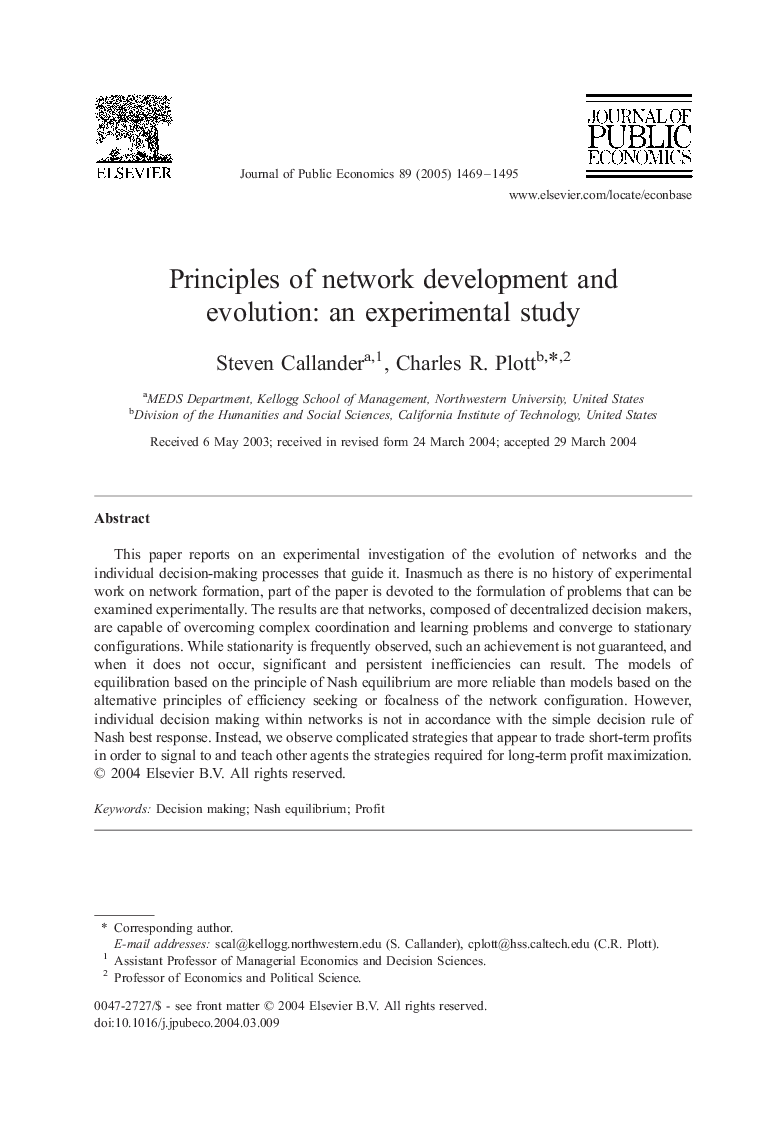| Article ID | Journal | Published Year | Pages | File Type |
|---|---|---|---|---|
| 10479346 | Journal of Public Economics | 2005 | 27 Pages |
Abstract
This paper reports on an experimental investigation of the evolution of networks and the individual decision-making processes that guide it. Inasmuch as there is no history of experimental work on network formation, part of the paper is devoted to the formulation of problems that can be examined experimentally. The results are that networks, composed of decentralized decision makers, are capable of overcoming complex coordination and learning problems and converge to stationary configurations. While stationarity is frequently observed, such an achievement is not guaranteed, and when it does not occur, significant and persistent inefficiencies can result. The models of equilibration based on the principle of Nash equilibrium are more reliable than models based on the alternative principles of efficiency seeking or focalness of the network configuration. However, individual decision making within networks is not in accordance with the simple decision rule of Nash best response. Instead, we observe complicated strategies that appear to trade short-term profits in order to signal to and teach other agents the strategies required for long-term profit maximization.
Related Topics
Social Sciences and Humanities
Economics, Econometrics and Finance
Economics and Econometrics
Authors
Steven Callander, Charles R. Plott,
